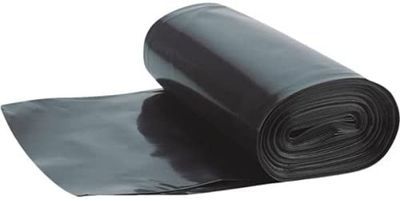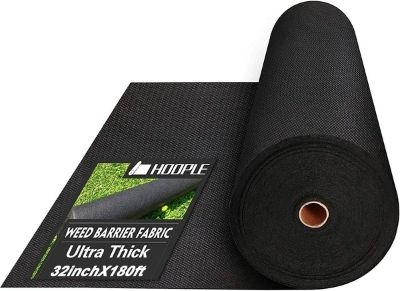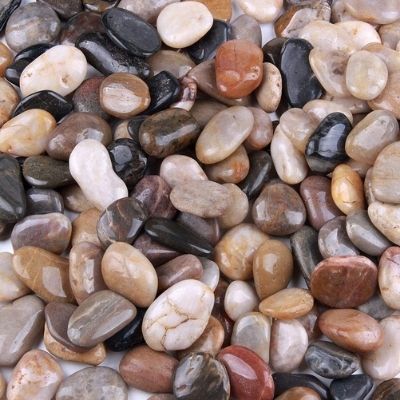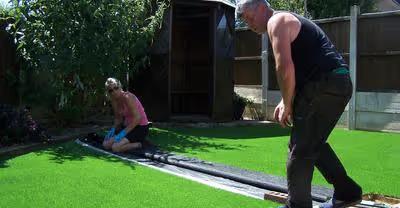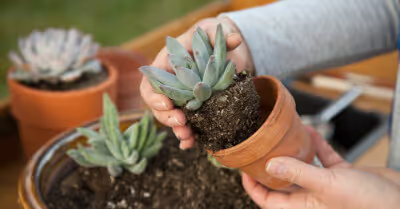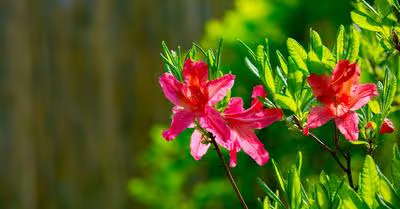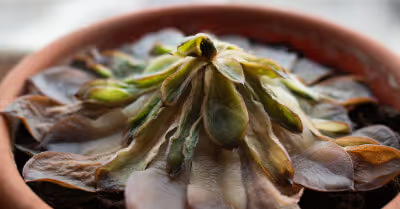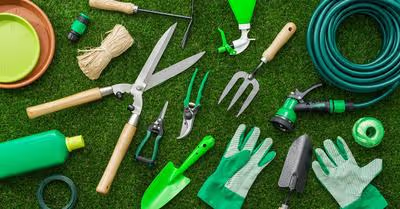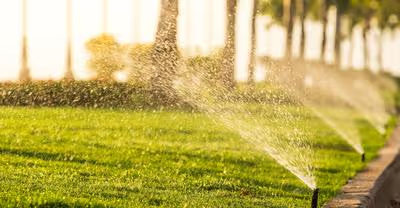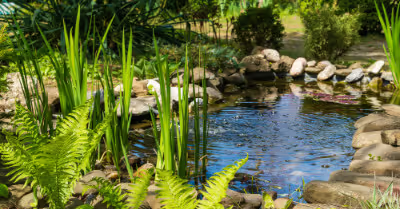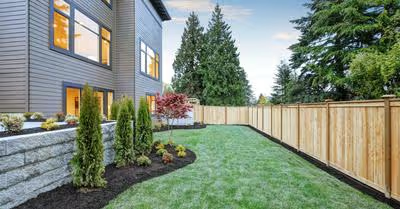Table of Contents
What Is Mulch?
Simply put, mulch is a material used to create a layer on top of the surface of the soil. Mulches come in two main categories:
- Organic – Anything that was once living and comes from the earth
- Inorganic – Manmade or manufactured
The Benefits of Mulching
Mulching is one of the most effective ways to maintain a healthy garden. Unmulched gardens produce fewer crops than one that’s well-mulched for the following reasons:
- Weeds – Helps control and suppress weeds by smothering them
- Diseases – Helps prevent diseases by keeping soil from splashing onto foliage
- Soil Temps – Keeps the soil’s temperature consistently warm
- Aesthetics – Gives garden beds a more finished look
- Moisture – Improves moisture control by trapping it under the mulch and protecting the soil from the sun
- Soil Enrichment – Organic mulches break down over time and add new compost to the soil
Organic Mulch vs Inorganic Mulch
Both categories of mulches provide advantages for landscapes. Inorganic mulches come in the form of:
- Rocks
- Non-Woven Geotextiles
- Rubber Chips
- Plastic Sheeting
Although some of these materials may fade or wear over time, they do not compost. Therefore, they don’t help add more organic matter to the soil. And some, such as black plastic, tend to break up into little pieces all over your yard. These non-recyclable particles can make a mess all over your landscape.
Organic mulches, on the other hand, provide greater benefits because they naturally decompose. With the help of earthworms, they break down and become organic matter. This adds more nourishment to the soil.
Here are some other benefits of organic mulches:
- Nutrients – Helps the plant roots consume needed nutrients
- Worms – Provides nutrition for earthworms and beneficial insects, fungi and bacteria
- Pests – Soil organisms above help you maintain control over many pests that haunt your garden
- Erosion – Helps the soil absorb water and rain better
- Roots – Encourage better root development and growth
- Cost – Generally, low cost and sometimes free
Tips for Applying Organic Mulches
When to Mulch
Mulching is best when done in the:
- Late Fall – After the soil is saturated by the first fall rains
- Late Spring – After the soil has warmed up from the spring sunshine
Before Applying Mulch
Mow the lawn and pull any existing weeds. Then, add layers of cardboard to the area. Or you can use layers of 4–6-page thick newspaper. These will help keep perennial weeds at bay by smothering seeds and seedlings.
Sheet Mulching
Moisten them well to keep them in place and jump-start the decomposition process. Soil organisms, such as worms love to feed on both, which speeds up the process even more. This entire process is called sheet mulching, which is very effective when using organic mulches.
Once the newspaper or cardboard is in place, top it with mulch. Add a layer that’s 3-6 inches in thickness to stay in control over weeds while providing soil protection. Bark chips and other coarse mulches allow for better airflow and water penetration than finer mulching materials. They also tend to last longer.
Contamination
Be sure not to contaminate your landscape by adding mulches that have been treated with pesticides or diseases. This could be wood chips processed from sickly trees or grass clipping from a neighbor who uses pesticides.
Fine Mulches
Sawdust, grass clippings and other finer mulches may prevent water from getting down into the soil. This is because they tend to mat up. However, for areas where no plant life is located, such as walkways, they make very effective mulches.
Weed Seeds
Ensure that there are no weed seeds in your mulch. This includes hay, as well as unfinished compost. When compost is in this state, that means the temperatures didn’t rise high enough to kill all the weed seeds.
Bug Control
Although many insects are repelled by organic mulches, they do attract the following types of soil-ridden bugs:
- Earwigs – Trap in tiny cups filled with soy sauce and cooking oil placed at soil level or rolled-up newspapers
- Pill Bugs – Use Diatomaceous Earth
- Sow Bugs – Use Diatomaceous Earth
Shrubs and Trees
When mulching, make sure the mulch is no less than three inches away from the bark of shrubs and tree trunks. If not, this could lead to decay.
Best Mulches For Vegetable Gardens
This section covers different types of inorganic and organic mulches. Let’s start with the inorganic varieties.
2 Effective Inorganic Mulches
These are man-made, processed and manufactured mulching materials used to mulch vegetable gardens:
1. Black Plastic
Picture of Black Plastic Bags
When it comes to managing weeds, black plastic can be effective, especially if it’s mulched over well so it never gets struck by the lawnmower. The sun will, however, break the plastic material down over time. That means you must replace it regularly.
It increases the temperature of the soil. This could lead to root damage if not monitored properly. To help with this, add a thick layer of organic mulch on top to prevent overheating and absorb the sunlight.
2. Landscape Fabric
Picture of Landscape Fabric
This man-made mulch acts much like black plastic when it comes to slowing down weeds. However, it too is susceptible to getting shredded by the lawnmower.
Landscape fabric is commonly installed under gravel and stones to keep them from mixing in with the soil. Also, if you ever decide to remove the stones or gravel, all you have to do is pull up the fabric itself and move it away.
3. Decorative Rocks
Although they do help with weed control, these types of inorganic mulches are usually used for decorative purposes. They very rarely need replacing or to be reapplied.
The main issue with these mulches is that they tend to absorb the sun’s heat, making the soil too dry and hot for roots to thrive, in turn, making it almost impossible for plants to flourish. So, it’s best to use decorative rocks in garden beds with drought-resistant plants or no plants at all.
7 Effective Organic Mulches
Organic mulches are made using plant materials. Here are some of the best choices for organic mulch for vegetable gardens:
1. Compost
What is compost made of? Good compost is a combination of the following:
- Kitchen Waste
- Yard Waste
- Decomposed Organic Materials
Compost makes an excellent mulch because it adds rich nutrients to the soil more and more over time. Carbon and nitrogen work their way into the soil as rain falls or when you water, giving your plants high-quality soil amendments. Soon, the composted materials will uplift the soil, getting rid of any toxins that stop plant life from flourishing.
2. Grass Clippings
Never use fresh grass clippings because they may create foul odors or heat up too much for your plants to thrive. Instead, let the clipping dry out before adding them to the garden. Add a few inches, then, gradually add more as they decompose.
Grass clippings quickly decompose, giving you free organic mulch in no time. This gives your vegetable garden a healthy dose of nitrogen when the plants need it. Just make sure the source lawn has not been treated with inorganic fertilizers or herbicides.
3. Leaves
Leaves are another type of free organic mulch. Instead of raking your lawn and tossing them in the trash bin, use them as a mulch instead.
Add 2-inch to 3-inch layers, which will decompose pretty fast. As they decompose, they release nutrients that help improve the structure of the soil. For a faster decomposition process, use the lawnmower to shred the leaves instead of mulching with unshredded leaves.
4. Newspaper
Although it’s not as easy to find these days, newspaper is a great choice for controlling weeds. It only takes one season to fully decompose, making it a fast-acting mulch.
Be sure to water the newspaper down really well and cover it with soil or organic mulch to keep it securely in place. In time, it will decompose into the soil. At the same time, it will allow roots to capture moisture while feeding microbes.
5. Pine Needles
When a soil’s acid levels are low, pine needles are an excellent choice for mulching. They increase the acidic activity and tend to stay in place during heavy rains. That means they won’t wash away, making pine needles one of the best mulches on the market for sloped landscapes.
Note: Although they do break down over time, pine needles decompose at a much slower rate than most other organic mulches.
6. Straw
Straw is an organic material that’s light, clean and composts fairly quickly. Just be sure your straw is void of any weed seeds because they may pop up in your vegetable garden later.
About six weeks after installing straw mulch, you may have to add a couple more inches for moisture and weed control. This is because it decomposes so fast.
7. Wood Chips
This is the most common and my all-time favorite type of organic mulch. Wood chips come in a variety of colors, sizes and shapes. As the wood decomposes, its organic matter works itself deep in the soil. The process is helped along by insect and earthworm activity as they inhabit the soil.
Wood chips soon become compost, which enriches and improves the texture and health of the soil. This, in turn, leads to a healthier vegetable garden. Because they also break down pretty fast, you will need to replenish this mulch regularly for best results and aesthetic purposes.
Recent Articles



